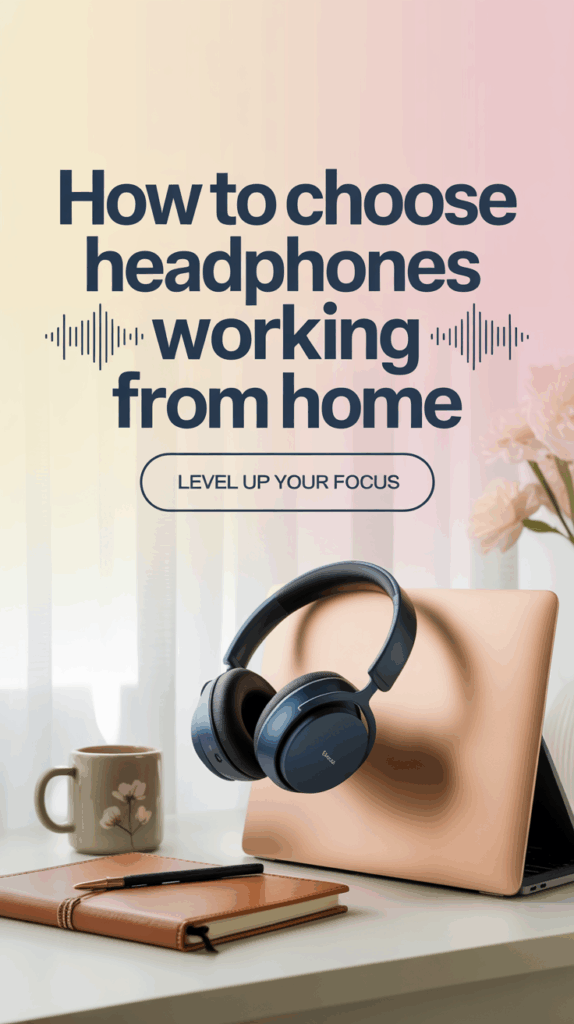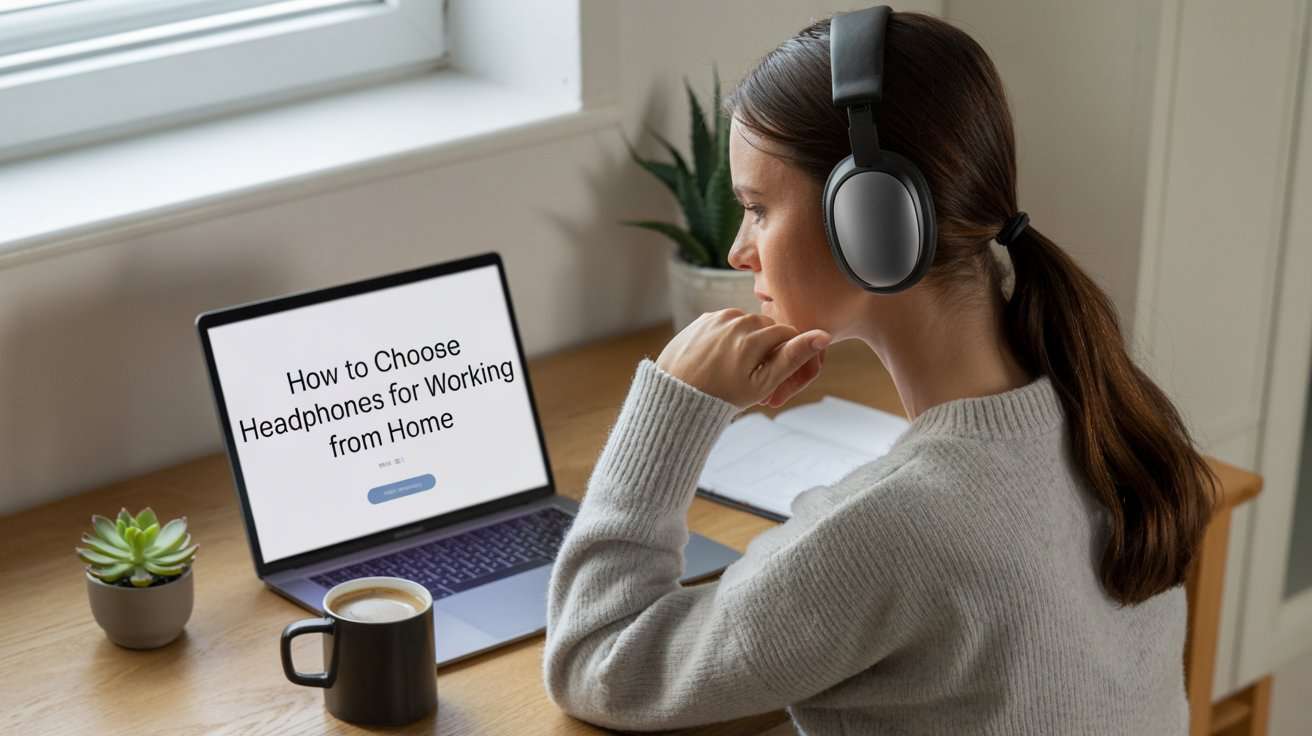Finding the right headphones for working from home isn’t just about sound it’s about shaping your entire workflow. Crisp audio keeps virtual meetings smooth, while comfort ensures you can wear them for hours without strain.
With countless choices wired for reliability, wireless for freedom, or noise-canceling for focus—the key is matching features to your lifestyle. Need clear calls or immersive music for deep concentration? The right pair does both, helping you stay sharp and productive. Let’s explore what really matters.
Why Choosing the Right Headphones Matters
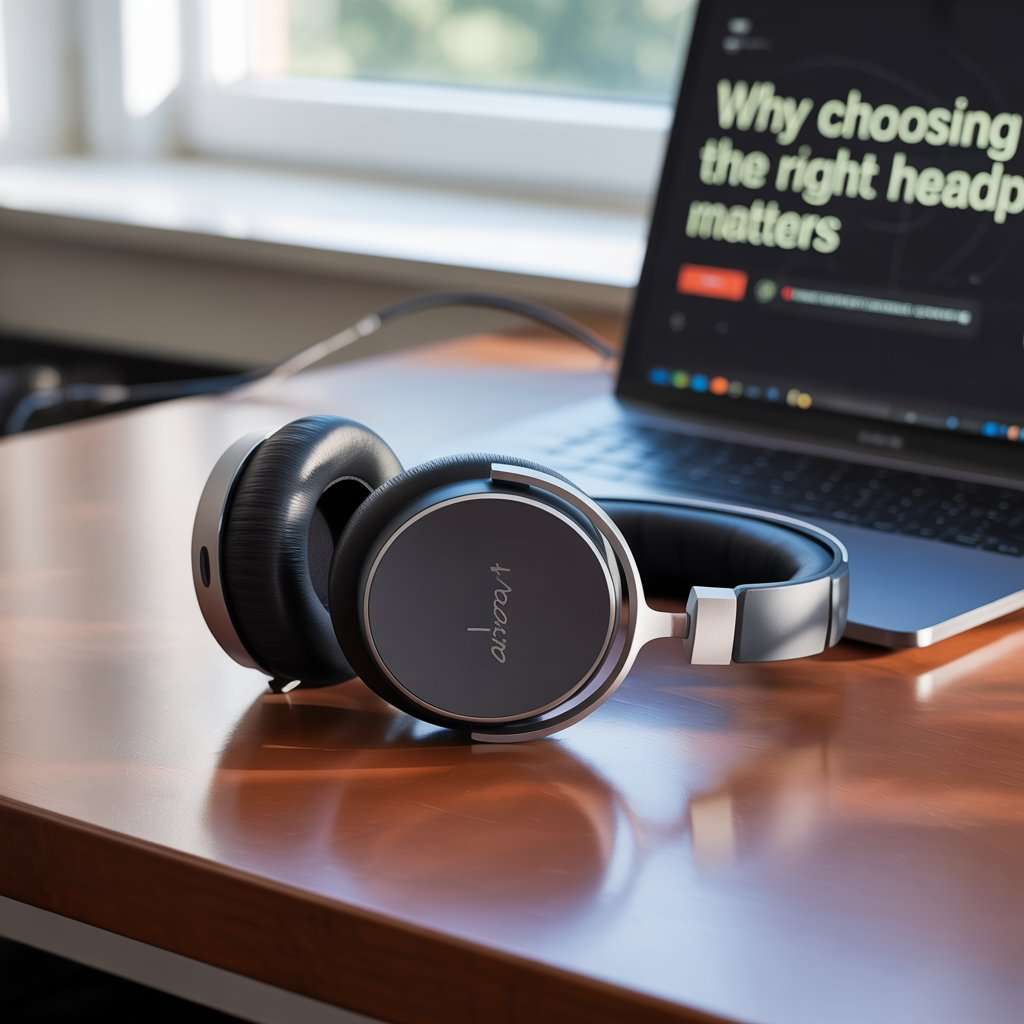
When working remotely, headphones become more than just a tool for music or calls—they transform your workspace experience. Good headphones enhance voice clarity, comfort for extended wear, noise cancellation, and connectivity compatibility with your devices. Choosing poorly can lead to discomfort, poor sound quality, and frequent interruptions—hampering work efficiency.
Key Factors to Consider When Choosing Headphones for Home Work
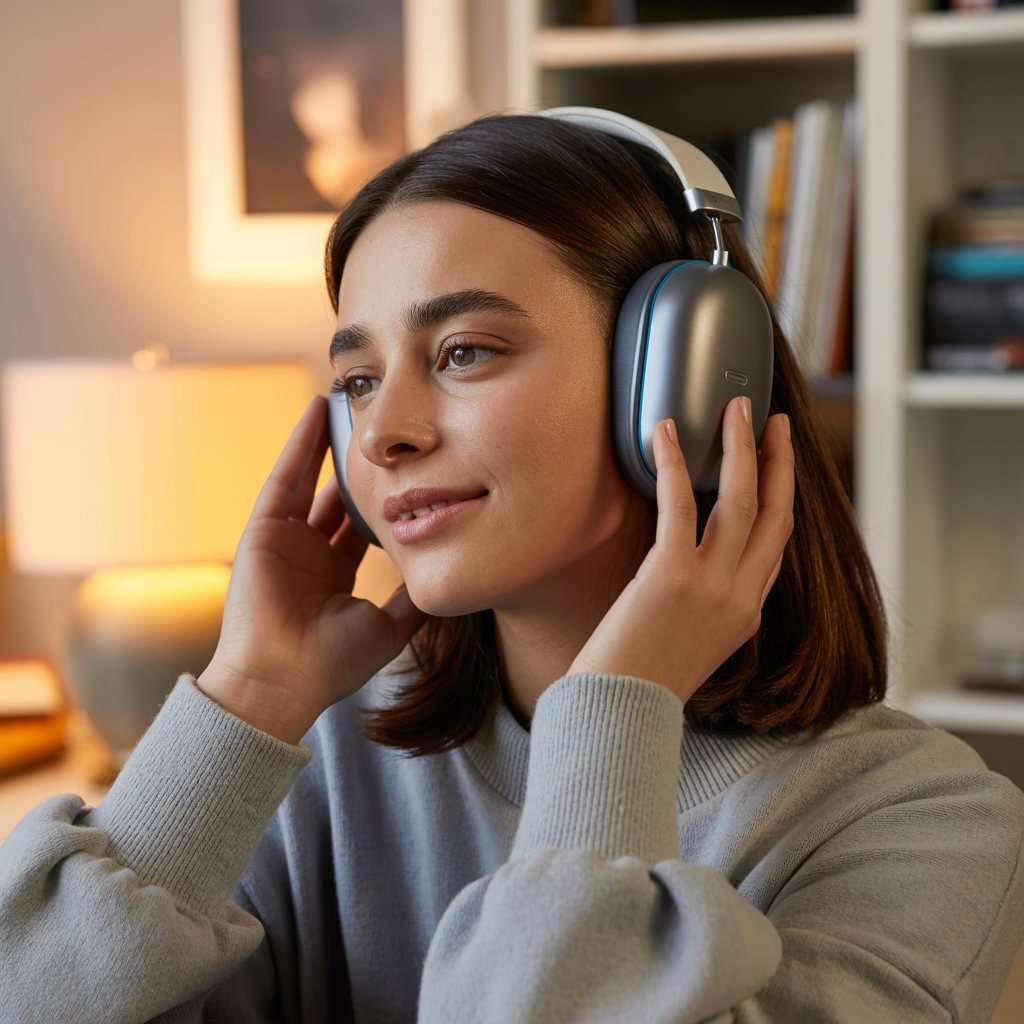
1. Noise Cancellation Technology
Active Noise Cancellation (ANC) is a must-have feature for most remote workers. It drastically reduces background noise from household sounds, neighbors, or street traffic. Some headphones use advanced adaptive ANC that adjusts to your environment automatically. This results in better concentration and clearer communication during calls.
2. Comfort for Long Wear
Since remote work often involves lengthy meetings or hours of listening, comfort is paramount. Look for adjustable headbands, cushioned ear cups, and lightweight designs. Over-ear headphones tend to provide better comfort and sound isolation but can be bulkier than on-ear or in-ear models.
3. Wired vs. Wireless
Wireless headphones offer freedom to move around, which is useful if you multitask during calls. However, wired headphones usually deliver more stable sound quality and have zero latency, avoiding interruptions. Consider your workspace setup and how often mobility is needed to decide the optimal choice.
4. Microphone Quality
Clear voice transmission is essential for remote work calls. Headphones with noise-canceling boom microphones usually deliver the best call clarity by isolating your voice from background noise. Some premium headphones integrated with multiple microphones also provide crisp voice pickup without need for a boom mic.
5. Battery Life and Charging
If opting for wireless headphones, battery life is critical. Look for a model that offers at least 15-20 hours of use to cover a full day without charging. Some models support fast charging for convenience, giving hours of playback after just a few minutes of charging.
6. Connectivity Options
Ensure the headphones are compatible with the devices you use—laptops, smartphones, tablets. Multipoint Bluetooth connectivity is a useful feature that lets you switch seamlessly between devices. USB or 3.5mm audio jack options are also important for reliable wired connections.
7. Sound Quality for Work and Leisure
While call clarity is crucial, sound quality for music or podcasts during breaks is a nice bonus. Balanced sound with good bass and clear mids makes for an enjoyable listening experience. Some headphones also come with customizable equalizer settings.
8. Durability and Build Quality
Since home work headphones are a daily-use item, build quality matters. Look for sturdy materials but avoid heavy designs. Soft, replaceable ear pads and foldable designs can extend the lifespan and ease portability.
Top Tips for Choosing Work-From-Home Headphones
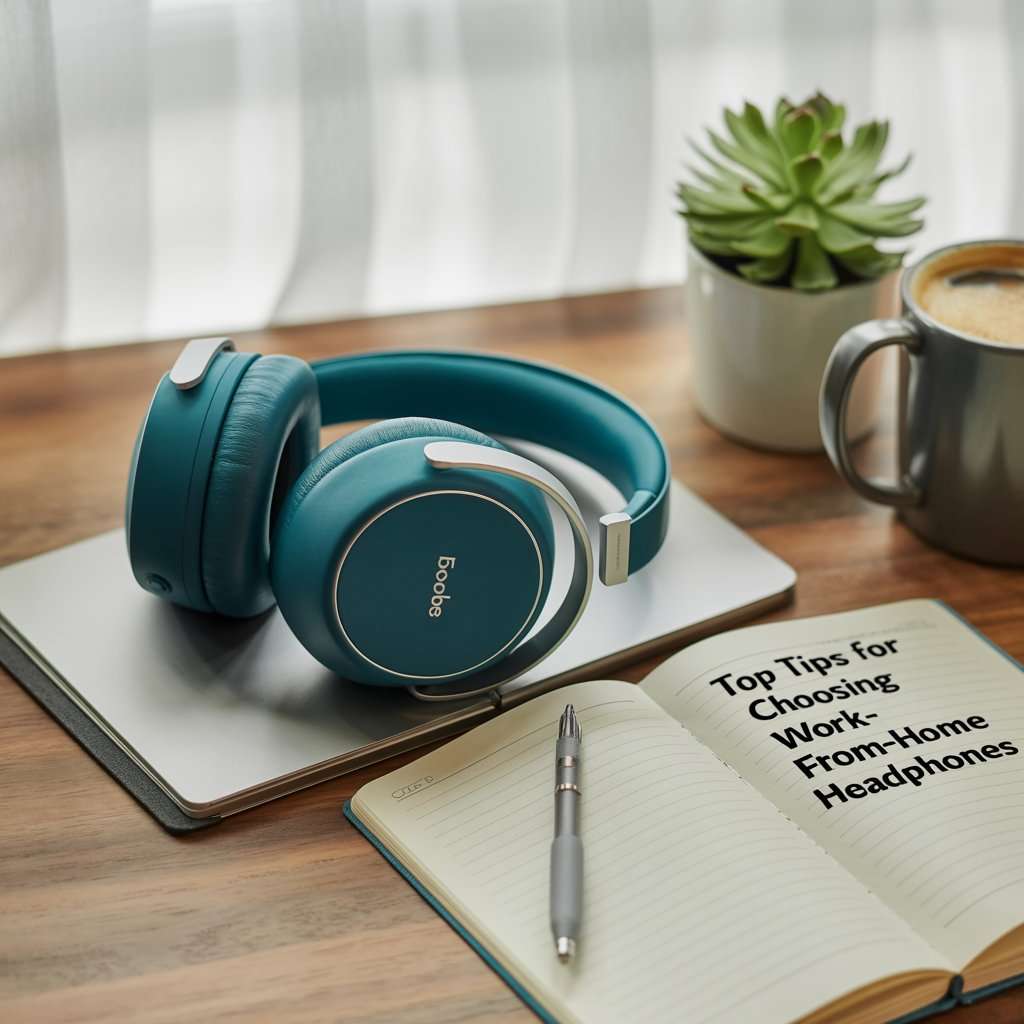
- Prioritize noise cancellation and microphone quality if calls dominate your workday.
- Try headphones on if possible to judge comfort; even high-end models can cause fatigue if poorly fitted.
- Consider hybrid models that offer both wired and wireless connectivity for versatility.
- Check battery life ratings and real-world reviews to avoid models with inflated specs.
- Look for headphones that support voice assistant integration for hands-free control during work.
- Select headphones with minimal sound leakage if others are working nearby.
- Set a budget but don’t compromise on key features; quality headphones are an investment in productivity.
Frequently Asked Questions
Q: Are wired headphones better than wireless for working from home?
A: Wired headphones tend to offer more reliable sound and no battery dependency, but wireless models provide mobility and flexibility. The best choice depends on your preference for movement and workspace setup.
Q: How important is noise cancellation for remote work?
A: Very important. ANC can eliminate distractions and improve call quality by reducing background noise, allowing for clearer communication.
Q: What type of microphone is best for work calls?
A: Headphones with noise-canceling boom microphones usually give the clearest voice transmission, but some advanced wireless headphones with multiple built-in mics do an excellent job without a boom.
Q: Can I use regular music headphones for work calls?
A: Yes, but dedicated work headphones often have better microphones and noise cancellation geared toward voice clarity.
Conclusion
Choosing the right headphones for working from home enhances every aspect of your remote workday—from clearer calls and reduced distractions to all-day comfort and enjoyable sound quality.
Consider noise cancellation, comfort, microphone quality, and connectivity as your top priorities. Whether you prefer wireless freedom or wired reliability, investing in a quality pair tailored to your specific needs will boost productivity and make working from home a much more pleasant experience.
